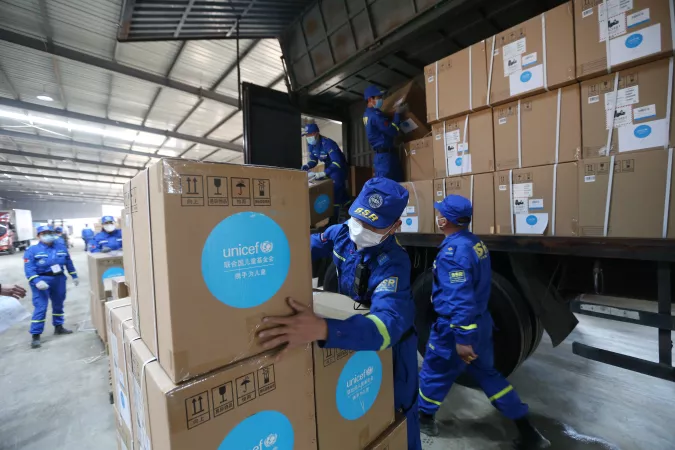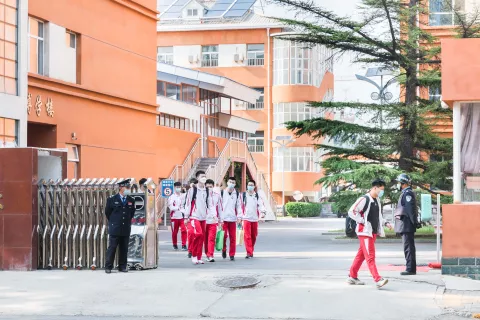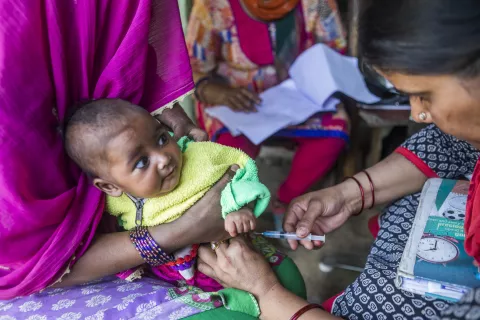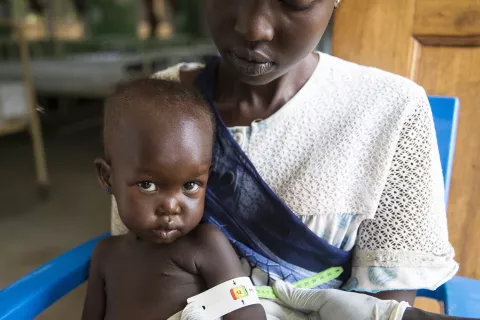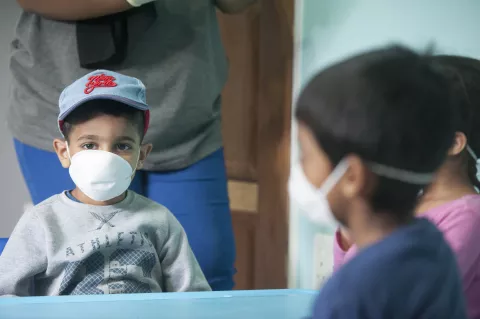Futures of 370 million children in jeopardy as school closures deprive them of school meals – UNICEF and WFP
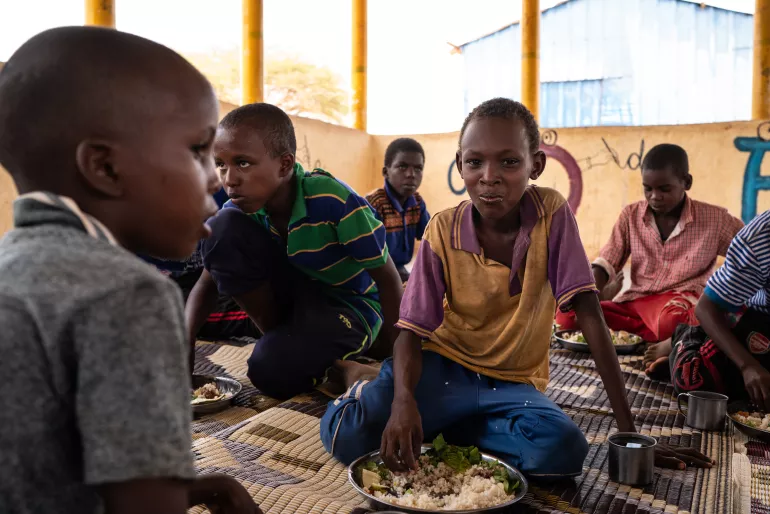
- Available in:
- 中文
- English
ROME/NEW YORK, 29 April 2020 – As the COVID-19 crisis pushes up levels of hunger among the global poor, the World Food Programme and UNICEF are urging national governments to prevent devastating nutrition and health consequences for the 370 million children missing out on school meals amid school closures.
“For millions of children around the world, the meal they get at school is the only meal they get in a day. Without it, they go hungry, they risk falling sick, dropping out of school and losing their best chance of escaping poverty. We must act now to prevent the health pandemic from becoming a hunger catastrophe,” said WFP Executive Director David Beasley.
School meals are especially critical for girls. In many poor countries, the promise of a meal can be enough to make struggling parents send their daughter to school, allowing her to escape heavy domestic duties or early marriage.
“School is so much more than a place of learning. For many children it is a lifeline to safety, health services and nutrition. Unless we act now – by scaling up lifesaving services for the most vulnerable children – the devastating fallout caused by COVID-19 will be felt for decades to come,” said Henrietta Fore, UNICEF Executive Director.
Alongside school meal programmes, children in poor countries often benefit from health and nutrition services - such as vaccinations, deworming and iron supplementation - delivered through their schools.
In response to a recent report from the United Nations Secretary-General, which highlighted the number of children missing out on school meals, WFP and UNICEF are working with governments to support children who are out of school during the crisis. In 68 countries, governments and WFP are providing children with take-home rations, vouchers or cash transfers as an alternative to school meals.
Under the partnership, WFP and UNICEF will assist governments in the coming months to ensure that when schools reopen returning children benefit from school meals and health and nutrition programmes. This will also provide an incentive for parents to send their children back to school. The agencies are also working together to track children in need of school meals through an online School Meals map.
To support this work – which will initially focus on 30 low-income or fragile countries to support 10 million children – UNICEF and WFP are appealing for US$ 600 million. Their work will be closely aligned with the UNESCO-led Global Education Coalition, a global push to ensure children keep learning despite the disruptions caused by COVID-19.
Notes to editors
About World Food Programme
The United Nations World Food Programme is the world’s largest humanitarian organization, saving lives in emergencies, building prosperity and supporting a sustainable future for people recovering from conflict, disasters and the impact of climate change.
Media contacts
Additional resources
About UNICEF
UNICEF works in some of the world's toughest places, to reach the world's most disadvantaged children. Across 190 countries and territories, we work for every child, everywhere, to build a better world for everyone.
| Visit UNICEF Global website: www.unicef.org Visit UNICEF China website: www.unicef.cn Follow us on Sina Weibo: http://weibo.com/unicefchina Tencent Weibo: http://t.qq.com/unicef Wechat: unicefchina |


